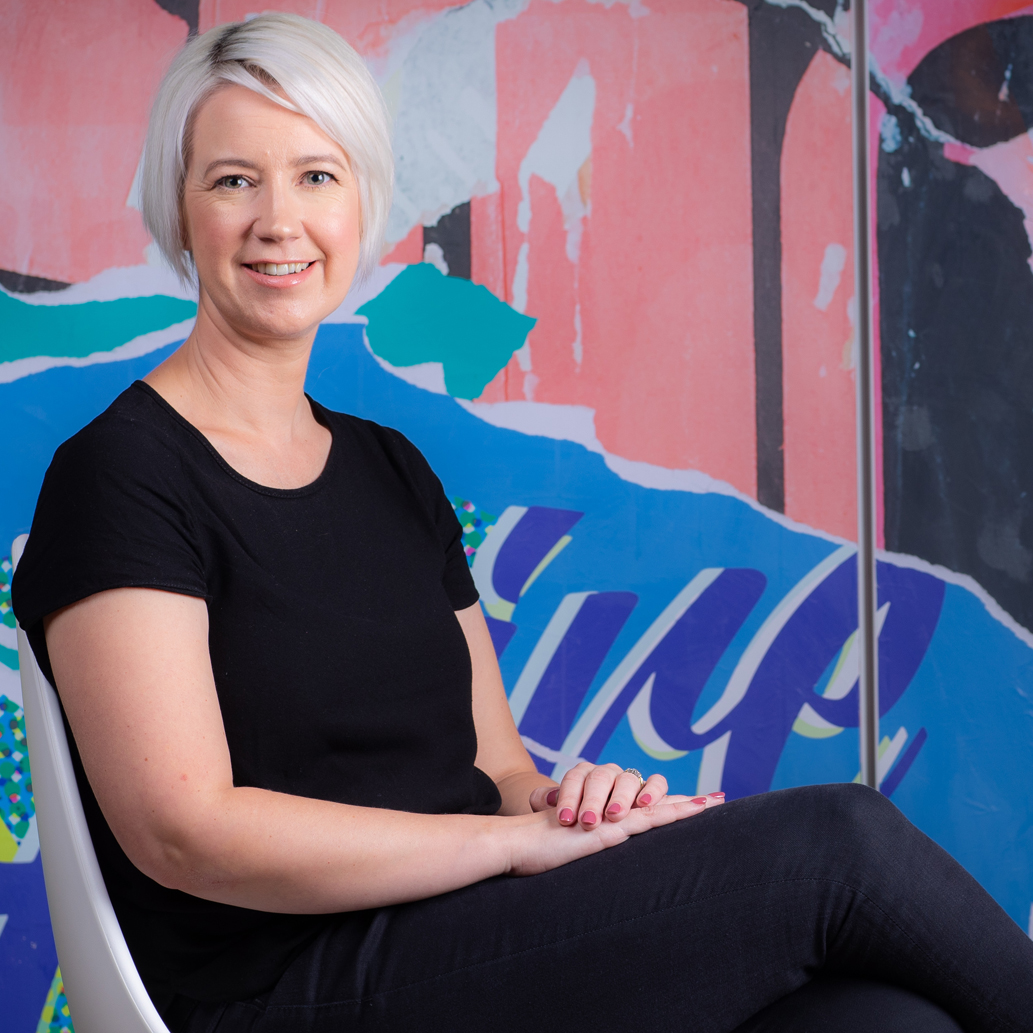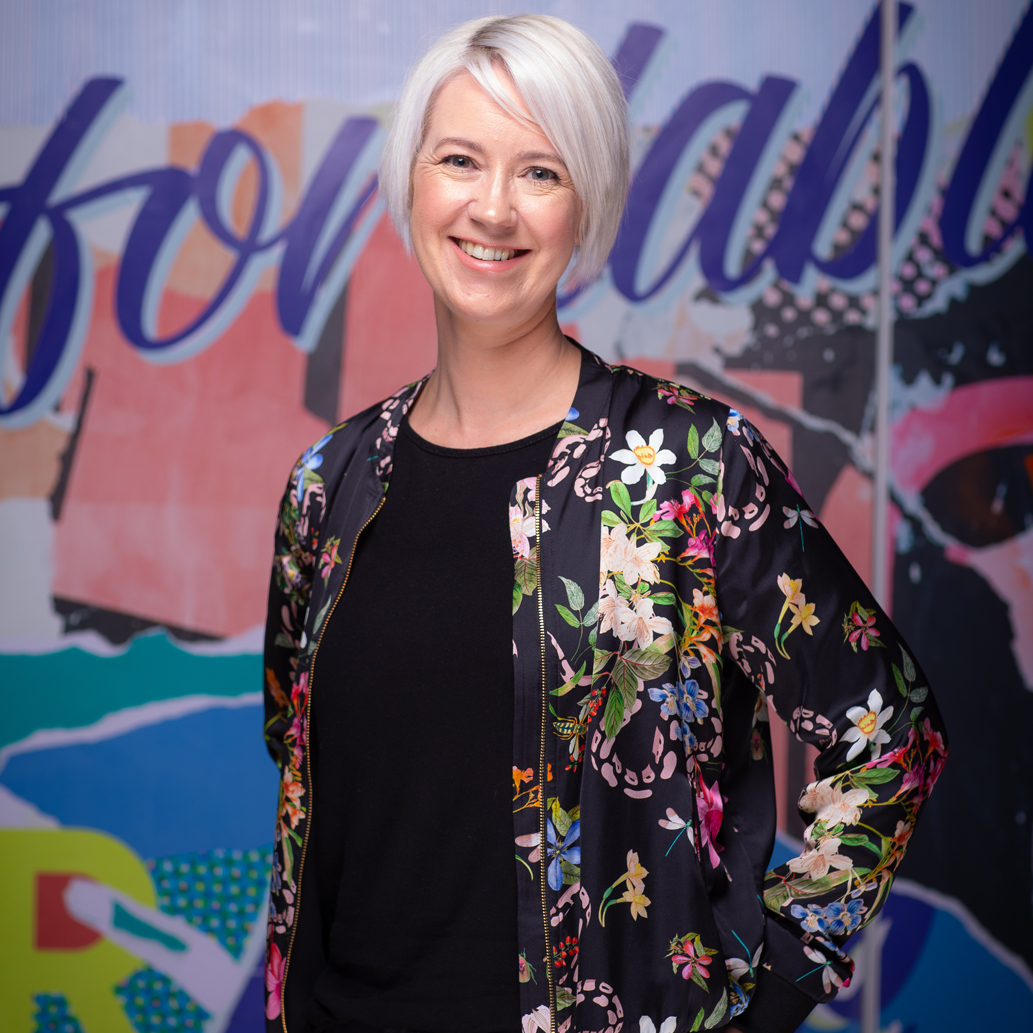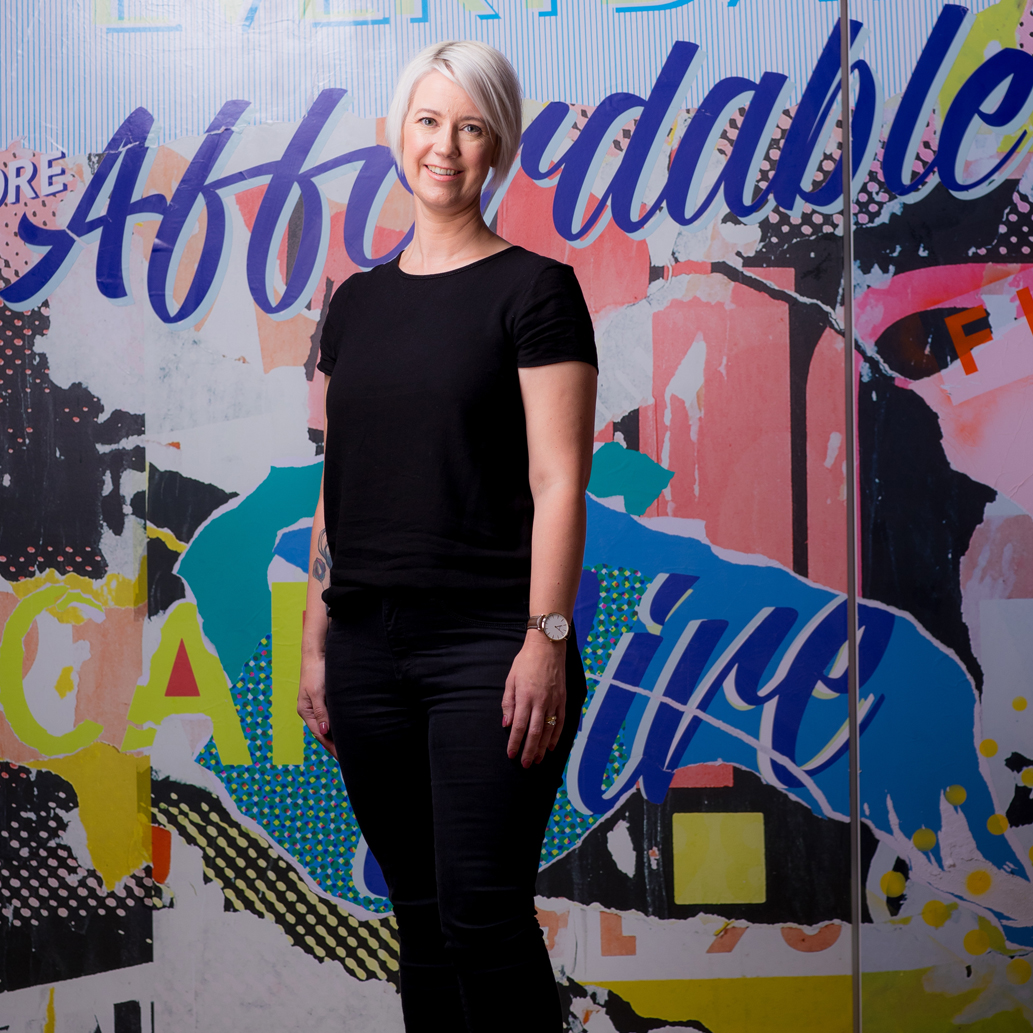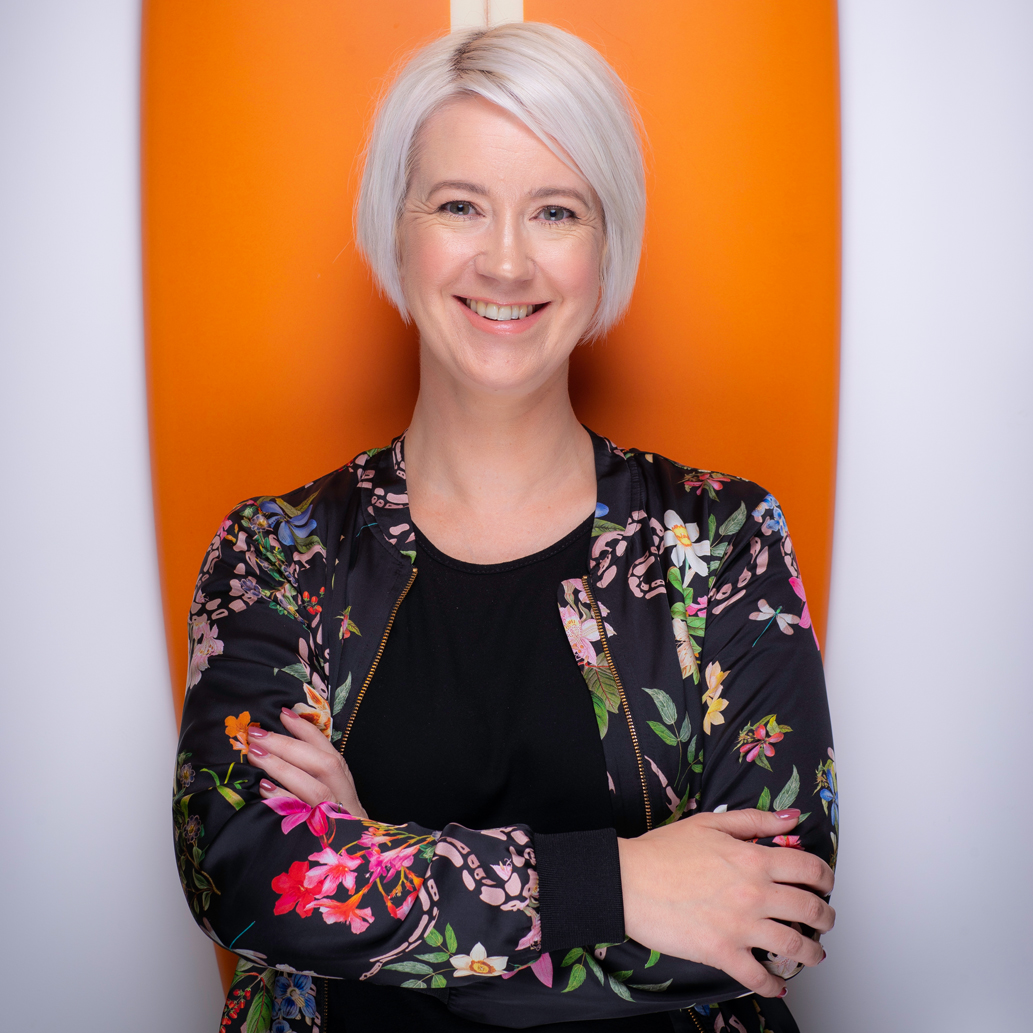Caoimhe, tell us about your early life and how your career path led to you becoming a HR professional.
I studied psychology at Queens University Belfast, followed by a Masters in occupational psychology. I graduated in 2000, and it was then a case of looking for a graduate placement and, to my surprise, it was great timing because employers were really beginning to open themselves up to the influence of occupational psychology, so my choice of subject proved well-founded. Even though psychology was, and still is, a specialism within HR, there was definitely an awakening to the potential value that behavioural science could bring, especially to organisations undergoing significant change or transformation. My first full-time job was at KPMG, as a graduate consultant in their Management Consulting team in Northern Ireland, where I spent a year and a half working on a range of things including; designing management and leadership training programmes. Then in 2002, I was approached by Deloitte, which had recently been awarded a significant contract to provide an outsourced recruitment service for the newly-established Police Service of Northern Ireland. It was in the context of a wider piece of transformation across the policing and justice sectors in NI, on the back of the Good Friday Agreement. Deloitte was building a team of occupational psychologists to design a robust assessment process for police officers, that minimised bias and could stand up to significant political oversight. I joined and was involved in the project for over five years, working on some really innovative and ground-breaking approaches, to deliver a more diverse candidate pool. It was a really transformational piece of work and looking back now, I can see just how formative an experience it was in terms of how the rest of my career panned out, and why diversity and inclusion has always been a strong theme in what I do.

Considering the history, I can’t think of a more challenging change programme.
Yes, it’s hard for me to believe that it’s over 20 years since the Good Friday Agreement, which marked the beginning of the transformation of the society I grew up in – for the better. In 1999, when the Independent Commission on Policing published its recommendations, it proposed sweeping changes to the police service composition in terms of; recruitment, training, culture, ethos and symbols. They were trying to create a service that worked more effectively in partnership with the community it served, and built trust on both sides. Our role was to run an outsourced recruitment service that aimed for 50-50 recruitment of Catholics and Protestants to the service. Understandably, at the time, it was a highly-controversial process, but some of the elements were really innovative – for example, to foster trust and oversight, members of the public were involved as assessors in the process. I was involved in recruiting people from all walks of life – many of whom had no recruiting or assessment experience – and training them to work alongside occupational psychologists in formal assessment centres to select police trainees. I also worked on aptitude test and assessment centre design, to provide a level playing field, and accommodate both those with some police experience and those without. It was a small contribution in the overall scheme of the policing sector change, but something I remain really proud to have been part of. Around that time, I also spent a year in London on a technology-led transformation programme in the Department of Work and Pensions, leading the communications work stream – I realised that I really didn’t know as much about technology as I needed to. So after eight years as a consultant in the public sector, I decided that I wanted to experience life in the private sector. Google had recently set up its European base in Dublin, and here, I could see an opportunity to work for an innovative technology business, back in Ireland, and I applied and joined the Learning & Developing team, working on management development programmes and supporting career development in the online operations teams. I then had the opportunity to move to an HR generalist role in Google and, for the next five years, worked as a regional HRBP. In the mid-noughties, Google was the new game in town and the economy in Dublin was still in the CelticTiger era, so it was an exciting place to be – a major tech hub, filled with young multinationals, a real graduate magnet, with people coming from across Europe and further afield. I supported Engineering Infrastructure & Operations and, at that time, Google was in the process of building new data centres across Europe. I worked with teams in; the Netherlands, Belgium and Finland and really loved learning about data centre operations and helping set-up these teams for success. This stage for me was when I earned my HR generalist stripes – gaining some useful experience working with different cultures and across different European jurisdictions. Trying to translate HR practices set in California into something that worked for folks based in a data centre in a remote area of Finland was a fun challenge. My time at Google really shaped my thinking about data-informed decision-making, and the importance of people analytics. I also loved how they often turned traditional HR wisdom on its head, because the data showed otherwise. There is a lot of talk about Google’s culture and the way that it engages talent and, in my experience, this was the first place I worked where I felt I could truly bring my whole self to work. Hierarchy was less valued, good ideas were what mattered and there was a culture of colleagues holding leadership to account and a willingness to openly discuss difficult issues in front of the whole company. My time there was well spent.

What happened next in your career story?
The potential for making bigger ripples in a smaller pond really began to appeal to me. I wondered what it would be like to join an innovative business at an early stage, and really have the opportunity to shape the culture and scale-up the HR function. I had just returned to work at Google after my second child was born, and an opportunity that fitted the bill came along. It was to lead the People Team at a digital music start-up called SoundCloud, which had just received a significant round of investment. The problem was, it was the right opportunity and right time – only in the wrong country – I would have to relocate to Berlin to take the role. We had two kids under three and we were settled in Ireland and close to family. To this day, I remain so appreciative that my husband supported the move in a show of support for my career and, in 2013, we moved to Germany. With the glamourous Googleplex a memory, the first day arrived. The SoundCloud team of 150 people, who at this stage were running the largest audio platform on the web – with 175M users touching the platform on a monthly basis – were squeezed into three separate small office buildings in Berlin-Mitte and I spent my first day perched on a sofa with my laptop, as there was no spare desk to be found – the business was growing fast and clearly running out of space! This was my first taste of being around the top leadership table of a company. We were a young and relatively-inexperienced team, but that’s exactly what working at a tech start-up is all about, and I loved the breadth of the role and involvement in all aspects of scaling the company. Along with the COO and founders, I focused a lot on thinking about how to scale the culture of the company in a healthy way. At that growth stage, the role of the People function is heavily-skewed towards recruiting and, in the early days, I failed to appreciate that. Looking back, I probably set the balance wrong, by focusing more on people programmes and culture, whilst falling behind on our ambitious hiring plans. Over time, as I built out my team, some brilliant people joined who helped make our recruiting machine really hum and I was able to take on additional responsibilities around real-estate and workplace, internal communications and, eventually, took leadership responsibility for our externally-facing community support team – the team that interacted with our millions of SC creators and listeners. At one point, I was responsible for teams comprising over 50 people, split across San Francisco, New York, London and Berlin, so I also had my first taste of managing a global team there.

Tech is dynamic, start-ups are exciting… it's a volatile combination.
A couple of years later, when we’d scaled the overall company to approximately 400 people, we hit a funding challenge and had to engage in some radical cost-saving in an extremely short time-frame. We took the difficult decision to lay off almost 40 percent of our employees, closing our offices in; London, San Francisco, Sydney and reducing our teams in Berlin and New York. It was the most difficult time of my career to date, without question. It was very emotional, and I felt personally accountable for having hired so many brilliant people, some of them having relocated from other countries to join us. As a leadership team, we had ultimately failed them. I knew I wasn’t going to be able to stay beyond this exercise and agreed with the founders that I would move on also. That was summer 2017 and, whilst it was a difficult period, it was the right thing for the company, helping bring costs under control and back on an even keel from which to rebuild the business model. I loved my time at SoundCloud, it truly was – as the saying goes – a rollercoaster ride of many highs and some very deep lows.
The old adage springs to mind, anybody can manage when things are on the up…
Yes, I’m not wishing to have too many more of those experiences in my career, but I do think it helped me grow as a leader. There are many things I wish I had done differently, but I have learned from the experience and, even in difficult times, there were some really positive moments. SoundCloud had developed a reputation for having some of the best talent in the industry and when the layoffs were announced, one of our employees created a public google spreadsheet with the names, skills and contact details of those employees who were willing to share that they had lost their jobs. It went viral across LinkedIn and some people were lining up dozens of interviews within days. For me personally, I learned a lot about my stress-response and how I come across as a leader in that type of situation – I know now where I can do better. I also recognised that it was important that I didn’t jump straight into my next thing, but that I took plenty of time to reflect and explore the opportunities that were available to me.
Tell me how you came across the opportunity at Moneysupermarket and what was it that appealed to you about the company?
Coming off the back of the start-up experience, I decided to look for a role that could provide a bit more stability – to the extent that there is such a thing – so I had a preference for a more established business. Moneysupermarket Group is a FTSE 250 business but, at the same time, is a pure-play digital business with only 700 employees. That combination was attractive and I met Mark Lewis, the new CEO and, when we talked about the purpose of the Group being to help households make the most of their money, I was sold. I’m a purpose-driven person and I love consumer businesses. Finances are tight for so many families in the UK and a business that makes money when people save money is a great place to have an impact. Add to that a real commitment from the team to transform the culture at MSMG, to make it more inclusive and innovative, and I knew it was a great next role for me. We were excited as a family to move to London, as it is a bit closer to home in Ireland – with our team at MSMG being based between London and the North West (Ewloe and Manchester).
As a brand, readers will have a good idea of what Moneysupermarket does, but tell us what makes the organisation tick, its culture and ethos.
Moneysupermarket is a Group of brands which includes the MoneySuperMarket price comparison platform, TravelSuperMarket and MoneySavingExpert, which was founded by Martin Lewis and joined the Group in 2012, and most recently, Decision Technologies, a business we acquired this year which provides B2B comparison services. The people are wonderful here and it’s a consistent theme in all our colleague feedback – there is a real sense of camaraderie within teams. We are informal and flexible, as you’d expect in a digital business and, this year, we have been making significant strides in building a more inclusive culture. Recently, for example, a number of colleagues came together to tackle the taboo of mental health in the workplace. They started by hosting a tea-break with the theme of “tea & talking”, and since then we’ve spoken more and more openly about mental health at work. The Thrive resource group, as it is now known, has ensured we have trained mental health first aiders in each of our offices and we have kitted out beautiful wellbeing rooms in each location. It’s been inspirational to watch what they’ve achieved in a short-space of time and it tells you something about the ethos here. The reason we’re focusing on inclusion is because we believe it drives innovation and our strategy is all about rediscovering our spirit of innovation. You could say we were the original UK FinTech unicorn business and having spent the last couple of years investing heavily in our technology stack, we are now in a position to really start innovating again in the products and services we provide to our users. An inclusive environment, where employees can be their true, authentic selves and everyone’s voice has real value, regardless of their seniority or tenure in the organisation is important because it’s the kind of environment we all want to work in. It fosters better creativity and innovation and helps us thrive both as individuals and as a team.
Business and workforce planning is very different now - a much more transitory workforce. You’re still controlling resources, but you can’t accept that what you do today will be relevant tomorrow.
Yes, it is challenging. People have more options and choices than ever before about how, where and when they work and they also want different things out of work. Commentators love to say it’s a generational issue – all this talk about Millennials and Gen Z – but much as I like to have fun with it, I don’t really subscribe to generational stereotyping. There’s no real research to back it up, everyone, no matter their age, wants more flexibility, more focus on career and personal development, a more human and empathetic workplace. I love that challenge of trying to build a business that can accommodate all of that, so that people can focus their energy on doing great work that really matters. As organisations, we also need to become much better at onboarding and offboarding different types of colleagues. Offboarding, in particular, because we expect to see more and more people coming back to work at companies they worked at previously, as people craft their careers in a different way. We’ve been focused recently on the concept of growth mindset and helping our colleagues recognise that the ability to learn and reinvent yourself is a really key skill for future success in the workplace. As we’ve been working on our career development agenda, we’ve tried to move away from the concept of linear career ladders and introduce the concept of careers being more squiggly. Our flagship career intervention is a two day offsite ‘career cabin’ where we absolutely introduce this mindset to participants. The challenge is the same for leadership teams when it comes to talent management and succession planning. I think that some of the traditional approaches in this space are really no longer fit for purpose. I wish I could say I have the magic answer as to how to go about it in this much more complex and ambiguous context, but I don’t!
Moneysupermarket is a well-trusted brand but your sector is competitive. What is the business doing to stay ahead of the curve and differentiating itself from the rest, now and in the future?
That is absolutely right. The price comparison sector plays an important role in helping consumers make good choices and find good deals, but we are not the only player. What we do have though is a real breadth of areas, where we provide comparison services, we also have independence, both as a publicly-listed business and through the consumer journalism driven by MoneySavingExpert via their editorial code. We’ve invested heavily in the last couple of years in the technology that underpins the platform and we are now in a position where we can really optimise the customer journey so that it works brilliantly on mobile devices as well as desktop. We are also investing in new areas, such as creating a digitised mortgage solution – an area that is ripe for innovation, still being predominantly conducted offline.
You've been on quite a career path, how do you reflect back on your life?
It looks like it all makes perfect logical sense. That every move was planned strategically to give a different set of experiences or exposure. It’s certainly not the case in my situation. What I am good at though is being able to draw a line through everything I’ve done and figure out what I gained from it, and how it gave me skills or experiences that were useful in something else I have gone on to do. It’s a lot of post-hoc rationalisation! When it comes to decision-making about my career I was once advised to make the decision based upon the company rather than the role – to worry less about the job title or remit and focus much more on the company, what it was doing and what the culture was like. I continue to think that is great advice.










